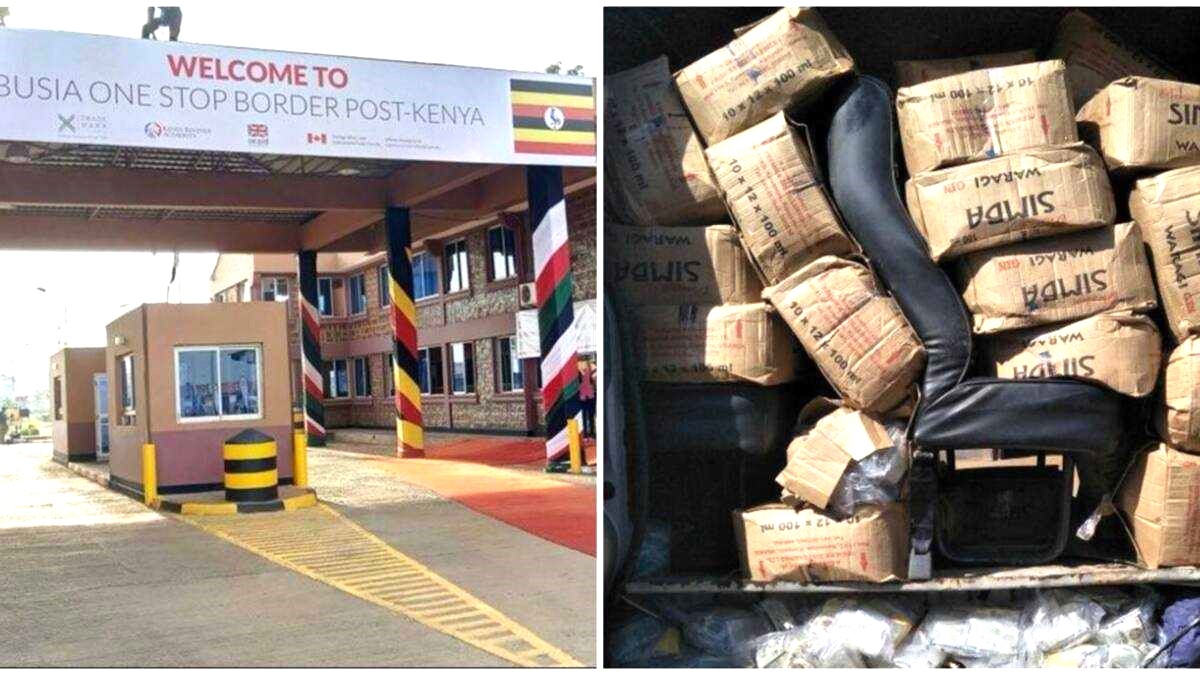Investigations by The Weekly Vision have unmasked a shadowy scheme: the smuggled goods, cunningly declared as exports to dodge local taxation, never see the light of legitimate international markets. Instead, under the cloak of darkness, they’re spirited away, offloaded into sprawling, cavernous warehouses in the dead of night. From there, they’re whisked across the border into Uganda, slipping through the cracks to flood retail and wholesale markets, each sale a brazen evasion of Value Added Tax (VAT) and other rightful dues, siphoning millions from the nation’s coffers
Business tycoons, primarily of Asian origin and based in Western Kenya, are engaged in rampant multi-million-shilling cross-border smuggling of commodities at the Kenya-Uganda border, costing the government hundreds of millions of shillings daily in unpaid taxes.
These tycoons, who own or control a vast network of supermarkets, hypermarkets, and manufacturing enterprises, are reportedly smuggling thousands of tonnes of goods daily in 24-hour operations. The goods, mostly manufactured items, are either produced in their own local factories or imported from countries such as China and other parts of Asia. Many of these factories are located across Kenya, including in Kisumu, Eldoret, Nakuru, Nairobi, Athi River, and Mombasa.
Investigations by The Weekly Vision have revealed that the smuggled goods are declared as exports, which exempts them from local taxation. However, instead of reaching legitimate international markets, they are redirected and offloaded into massive warehouses—mostly at night, then smuggled into Uganda and sold at retail and wholesale rates, avoiding payment of Value Added Tax (VAT) and other statutory dues.
The smuggling operations are concentrated in towns such as Busia, Malaba, Lwakhakha, and Port Victoria. In Port Victoria, in particular, the goods are transported via Lake Victoria into Ugandan territory, then distributed deeper into Uganda, Rwanda, Burundi, and even parts of the Democratic Republic of Congo.
The tycoons’ presence is especially strong in Busia and Malaba, areas known for porous borders and widespread corruption. Local and national security agencies, including police and high-ranking officials, are alleged to be compromised, allowing the operations to thrive unchecked.
Two prominent Asian-owned business empires, based in Western Keny, are said to be among the most active in these schemes. These groups control extensive retail chains across Kenya, with branches in major towns like Eldoret, Kisumu, Kitale, Webuye, Bungoma, Busia, Kakamega, Mumias, and Malaba. Their supermarkets and logistics networks are allegedly used as fronts for the illicit trade, generating massive daily profits through smuggling.
One businessman rose to infamy in the 1990s for smuggling bread into neighbouring countries and has since built a complex regional empire. He and others have been linked to years of sustained tax evasion and smuggling, aided by their ability to manipulate systems and officials.
Earlier this month, Kenya’s Cabinet Secretary for Finance, John Mbadi, admitted in a televised interview that some of the country’s wealthiest individuals routinely evade taxes. He noted that this results in losses amounting to hundreds of billions, if not trillions—of shillings annually, a burden ultimately transferred to ordinary taxpayers.
James Maina, the manager of the Busia One Stop Border Post (OSBP), stated: “We are fully aware of these individuals’ activities, and they see themselves as untouchable. We are conducting our investigations thoroughly and aim to apprehend the kingpins, not just the agents behind whom they hide.”
Maina further revealed that the Kenya Revenue Authority (KRA) has uncovered evidence showing these operations have been running for nearly three years. The tycoons’ extensive retail and logistics networks are being used as camouflage for these large-scale smuggling activities.
The Kenya National Chamber of Commerce and Industry (KNCCI) has confirmed these reports and urged the government to take decisive action. Its recommendations include revoking all trading licenses and permits held by the implicated businesses to halt the operations and restore tax compliance.





